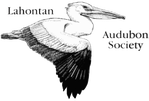|
By Kentia Kalanaki Bird feeders are such wonderful things to have in your backyard. It’s so amazing, for me at least, to see all the beautiful birds that come to my feeder hopping about my backyard! In the spring, I see lesser goldfinches feeding their fledglings. Summer, I see grosbeaks singing their sweet songs, with quail families marching beneath them. Fall marks the arrival of the white-crowned sparrows, and they stay throughout the winter along with the cute little juncos and hermit thrushes! All year round, my bird feeder is a magical place full of all kinds of birds where I can sit by the window, mesmerized by their interesting behavior.
Bird feeders can be great things for many birds, especially during the cold winter months when it may be more difficult to find food elsewhere. However, feeders can also be their downfall. Birds, just like us, have a wide variety of contagious diseases. That’s why it is extremely important to clean your bird feeders regularly. Feeders should be cleaned at least every other week (hummingbird feeders every time they’re refilled), more frequently when possible. Soak the feeder in a solution of 9 parts hot water, 1 part bleach for about 10 minutes to clean. You could also use a mixture of soap and boiling water, or 3% hydrogen peroxide (which can be found at most local pharmacies). The area underneath the feeder should also be swept and/or washed if possible. But sometimes, just cleaning feeders and their surrounding area frequently just isn’t enough to keep our feeder friends safe… Just like in humans, sometimes, disease outbreaks happen in birds as well. Make sure to keep an eye on the news, so you know when it’s no longer advised to have your feeders up. Taking your feeders down may seem harsh towards the birds that visited them, but remember that they’re naturally foraging animals, so they’ll be able to find food in the wild. When you take your feeders down, you’re helping birds with “social distancing” by not encouraging them to crowd around each other in one location. What do sick birds look like, anyway? Sick birds are normally puffed up and lethargic, and may have swollen, crusty eyes. It’s often easy to get close to them due to their lethargy, but they should NOT be approached! To learn more about how to recognize a sick bird, see this article from Cornell Lab’s Feederwatch: https://feederwatch.org/learn/sick-birds-and-bird-diseases/ If you ever see a sick bird at your feeder, make sure to take it down immediately, and don’t put it back out for a few days, just to make sure that disease isn’t being spread. Clean it and its surrounding area thoroughly before putting it back out. Certain types of feeders can also help avoid disease. Platform feeders are normally not as hygienic as regular column feeders, because the seed is spread out right where the birds’ droppings can land, and many diseases spread through fecal matter. So if you have a platform feeder, consider changing to a column feeder, to keep your feeder friends safe! Lastly, if you have a birdbath, it’s also very important to take proper care of it. A dirty birdbath is terrible not only for birds but for your garden too! Read more about keeping birdbaths clean in this article from the National Audubon Society: https://www.audubon.org/news/why-you-should-keep-your-birdbath-clean Thank you for helping keep our feathered friends safe, healthy, and fed by ensuring your backyard and feeders are safe and clean! More Sources: https://www.massaudubon.org/learn/nature-wildlife/birds/bird-diseases-parasites https://backyardbirdshop.com/keeping-birds-healthy-what-and-how-to-clean/ |
topics
All
Archives
July 2024
|


 RSS Feed
RSS Feed